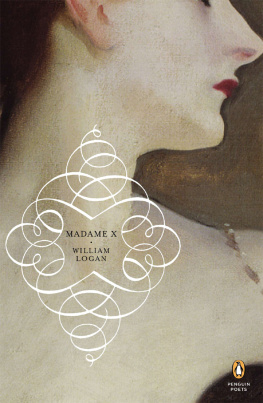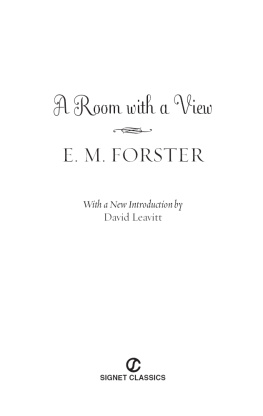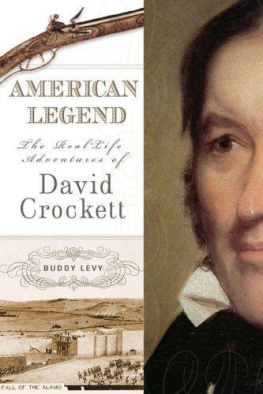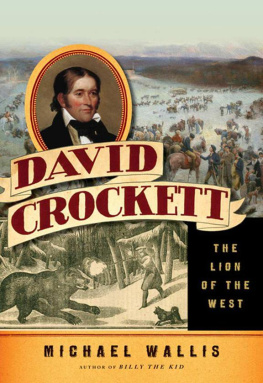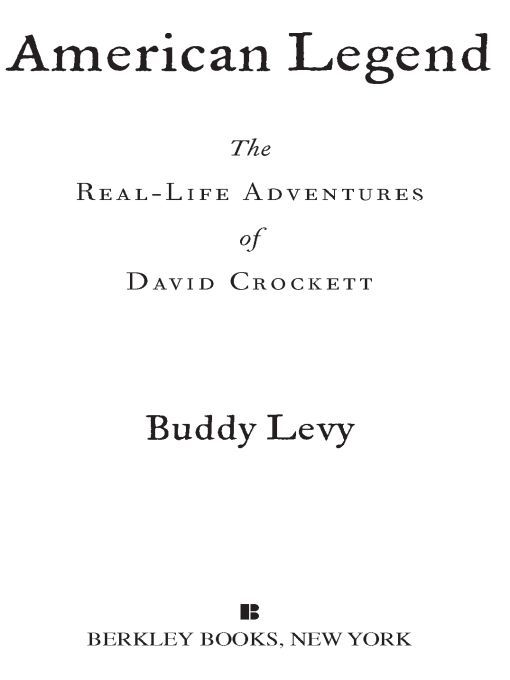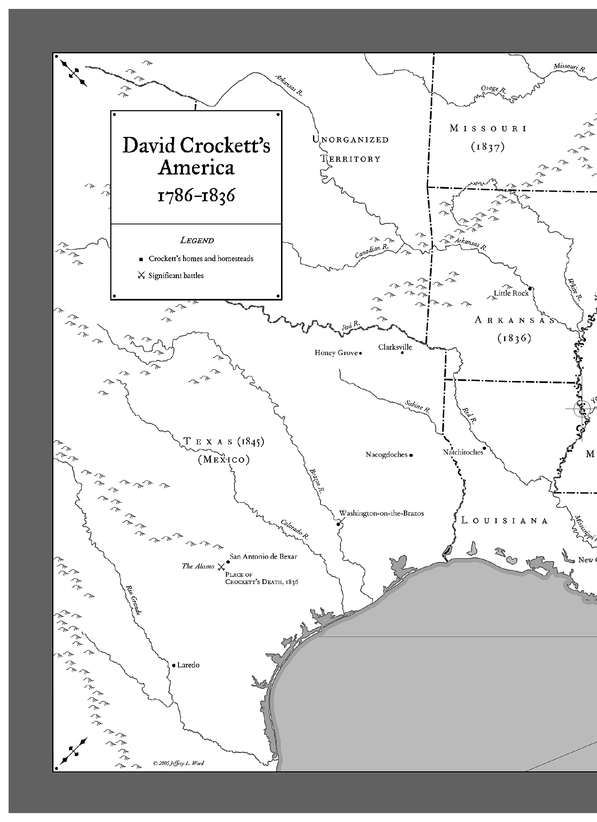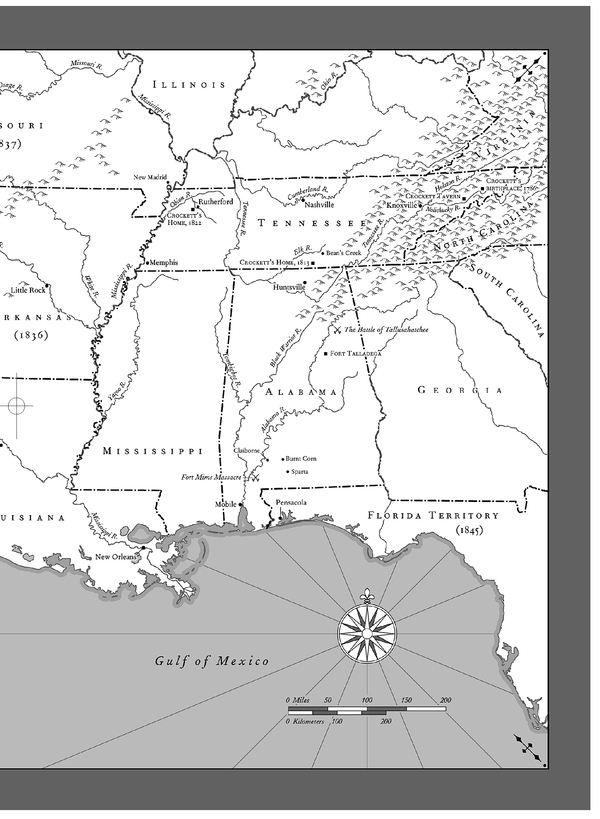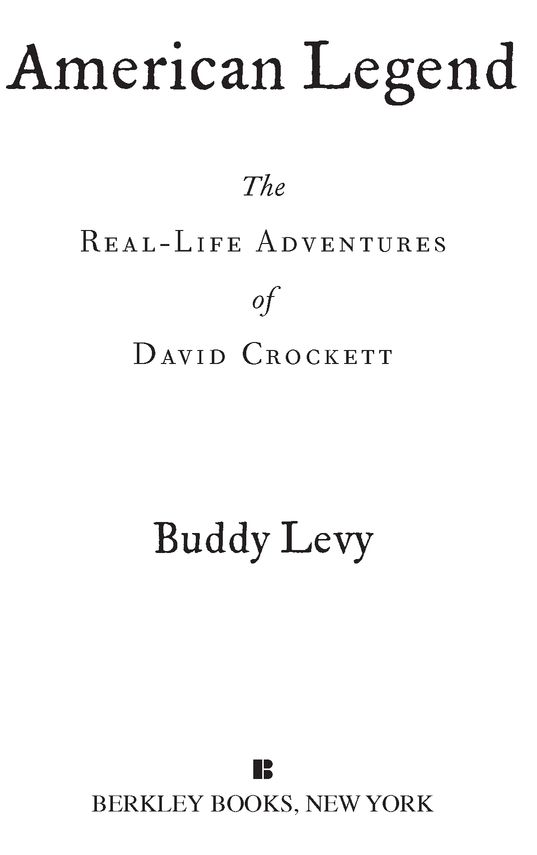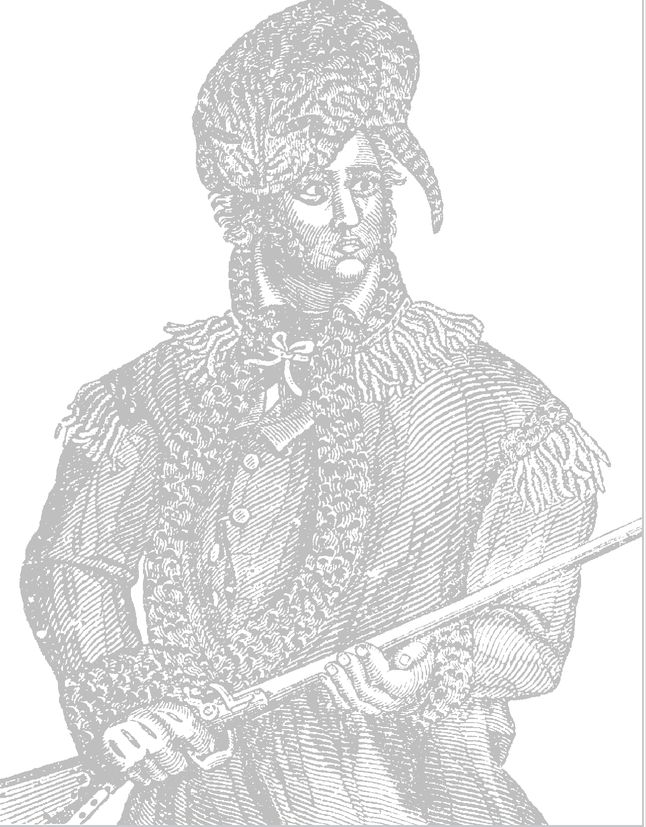Table of Contents
In a lively mix of clean prose and Crocketts own words, Buddy Levys American Legend provides a rare look beneath the fabric of legend to the man underneath. This is the frontiersman turned statesman, who keeps his eye on the rights of Indians and the common man, but loses sight of himself in the myth he has helped create. Three cheers for Buddy Levy, who makes history into a real page-turnera fascinating read.Claire Davis, author of Season of the Snake
A great myth-busting story, written in a taut narrative style that is guaranteed to keep the reader up all hours turning the pages. Painstakingly researched, with an eye toward nuance and the telling vignette, this crackling piece of work presents Davy Crockett as a man of genius and folly, which has the unlikely effect of making him all the more heroic.Martin Dugard, author of The Last Voyage of Columbus and Into Africa: The Epic Adventures of Stanley and Livingstone
Buddy Levys American Legend proves that history can be as spell-binding and dramatic as any novel and as compelling as any reportage. His account of the life and deeds of Davy Crockett rockets from a young mans travels in the new republic to a living legends heroic last days at the Alamo. Along the way, we meet other giants in that era of the common man and the Old WestAndrew Jackson, Sam Houston, Jim Bowieand Levy brings every one of them to life again. This is cant-put-it-down storytelling at its best.
Peter Hoffer,
Distinguished Research Professor of History,
The University of Georgia
Also by Buddy Levy
Echoes on Rimrock:
In Pursuit of the Chukar Partridge
No man can make his name known to the forty millions of this great and busy republic who has not something very remarkable in his character or in his career. But there is probably not an adult American, in all these widespread States, who has not heard of David Crockett. His life is a veritable romance, with the additional charm of unquestionable truth.... As such, his wild and wondrous life is worthy of the study of every patriot.
JOHN S. C. ABBOTT, 1874
ACKNOWLEDGMENTS
Many people deserve thanks for their assistance at various levels in the creation of this book. My core group of writing colleagues, the Free Range Writers, has been supportive and constructively critical throughout the entire process of this book and during all my writing endeavors since the late 1980s, and my appreciation of their support is deep and abiding. They are Collin Hughes, Kim Barnes, Jane Varley, and Lisa Norris. My agent, Scott Waxman, was instrumental in the conception of this work, and he provided sage counsel during the proposal phase, offering a shrewd editorial eye and positive vision for what the book could become. He is creative, attentive, exceptional. Thanks also to his colleague Sally Wofford-Girand for recognizing that Scott and I would be a good fit and for introducing us, and to Rob Buchanan for first taking an interest in the book. Chris Pepe, my editor at Putnam, offered excellent advice and keen insight throughout, her wealth of experience showing in her deft sense of pacing and brevity. Working with her has been a genuine pleasure.
Four noted (and oft-quoted) scholars quickly responded to a barrage of unsolicited e-mail queries, and I very much appreciate their passion, their scholarship, their forthcoming and candid responses, their depth of knowledge. Thanks to William C. Davis, Michael Lofaro, Andrew Burstein, and H. W. Brands.
I am indebted to a number of archivists and librarians for their good-spirited assistance as I researched this book. Notably, the entire staff at the Tennessee State Library and Archives in Nashville was extremely helpful, immensely knowledgeable, and always professional. Thanks especially to archivists Susan Gordon and Darla Brock, as well as Marylin Bell Hughes. At the Smithsonian National Portrait Gallery, Lizanne Garrett was cheerful, expeditious, and efficient in helping me with images and portraits.
The Center for American History at the University of Texas in Austin was an invaluable resource, and their entire staff made my visit and work enjoyable and efficient. The Daughters of the Republic of Texas Library at the Alamo is a remarkable place, and one senses the history all around those hallowed grounds. The folks there are friendly, detail-oriented, and passionate about Texas history. Warren Stricker, archivist, was particularly helpful and provided me with timely assistance and ideas. At my own institution, Washington State University, I have benefited immensely from interlibrary loans in Holland New Library. The fine, hardworking staff, especially David Smestad, Nancy Beebe, Bob Davis, Shirley Giden, and Kay Vyhnanek, have allowed me to obtain a wide array of materials from a web of libraries and research institutions around the nation, with impressive speed and efficiency.
My early readers included dear friends John Larkin and Kim Barnes, whose sharp eyes and attentive scrutiny I need and greatly appreciate. Longtime friend and muse Sara Aglietti provided spirit, affirmation, and sense of humor. Computer guru Sharon Harris kept me from blowing up my computer. I value her kind patience.
Thanks, finally, to my entire family, immediate and extended, whose support is unequivocal and deeply appreciated. To my lovely children, Logan and Hunter, who endured my absences, and to my wife and partner, Camie, who has always believed in me: you give me more than you will ever know.
Prologue
THERE ARE MEN, and there are legends, and in rare instances the two converge.
On a late December evening in 1833, a weather-worn but well-dressed man of forty-seven heads down the blustery Washington City (present-day Washington, DC) streets toward the Washington Theatre. There is a distinct swagger in his gait, a cockiness and confidence in his purposeful stride and compact, stocky frame. His angular face and aquiline nose are ruddy and wind-scoured, betraying a life outdoors, and his hands, though they have not felt the sure tug of reins or the smooth stock of a hunting rifle in quite some time, are still calloused and craggy.
As he walks, people call out, and some crane their necks as he passes, hoping to get a better look. When they do, their faces brighten with recognition. He smiles and walks on, nodding and waving as he goes.
He has plenty to smile about, and much on his mind as he nears the theater.
He has just begun a new book, a memoir, one he has determined will be truly the very thing itself, the exact image of its author, though he knows there is a bit of tongue-in-cheek to that claim. The book will contain politics, too, and if he plays it right, the book might just make him some money and keep him in Congress for another term or two. Better yet, it could set him up for a run at an even bigger prizethe presidency of the United States of America. Only a few years earlier the very notion would have been preposterous. But now? Nothing seems unattainable.


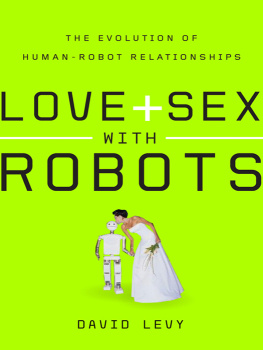
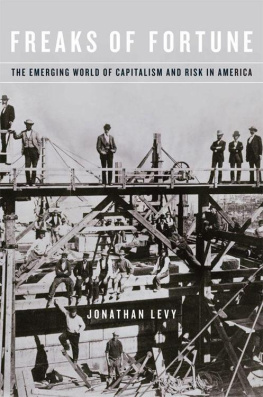
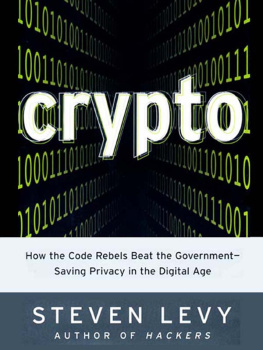

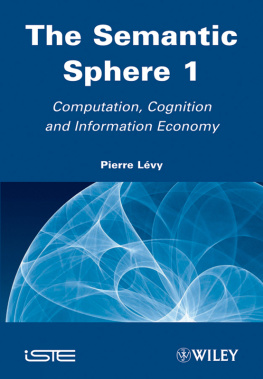
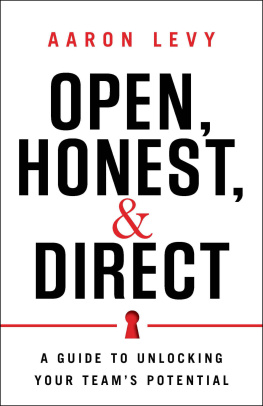
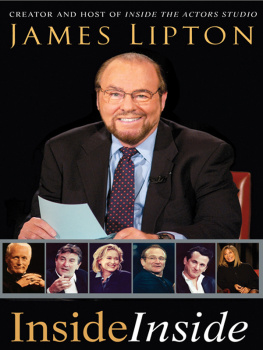
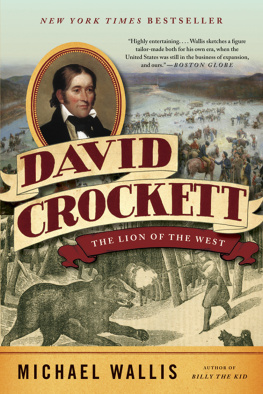

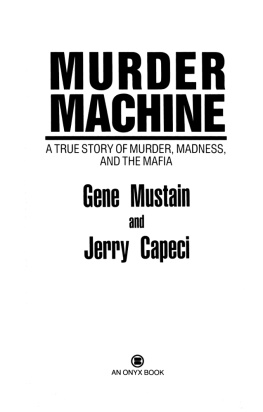
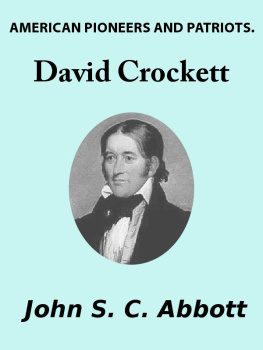
![Harry Turtledove - Worlds that werent : [novellas of alternate history]](/uploads/posts/book/79050/thumbs/harry-turtledove-worlds-that-weren-t-novellas.jpg)
